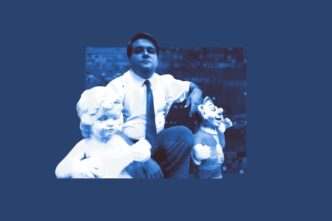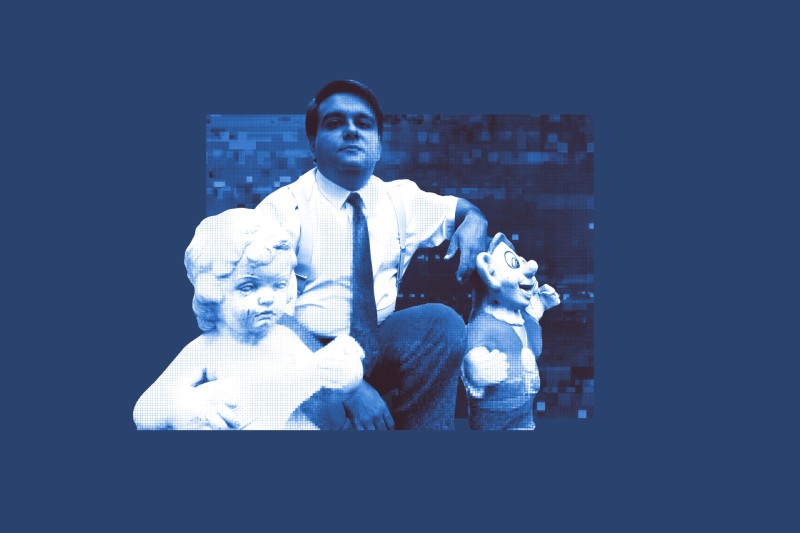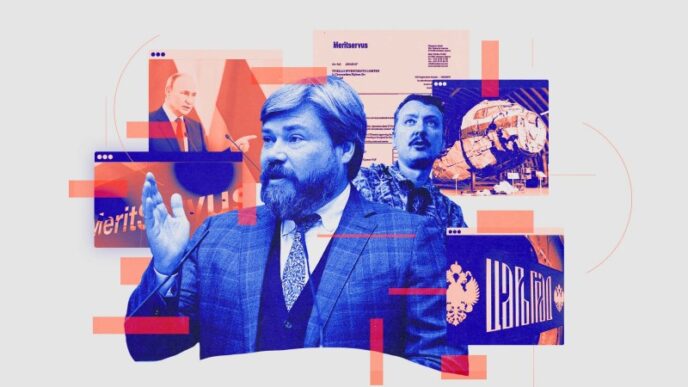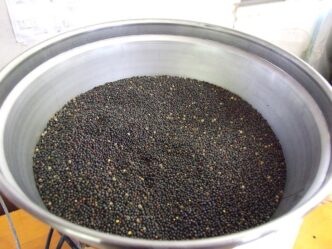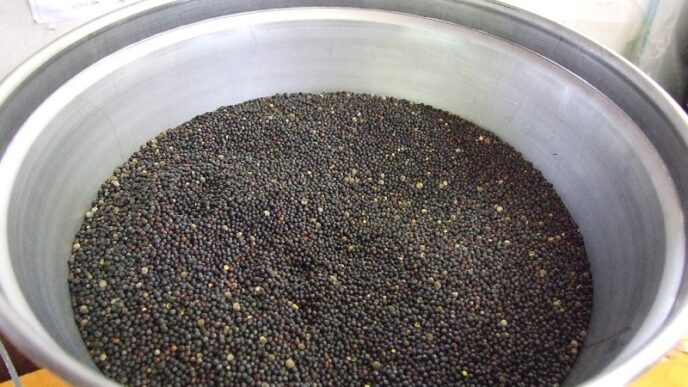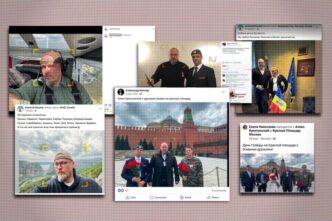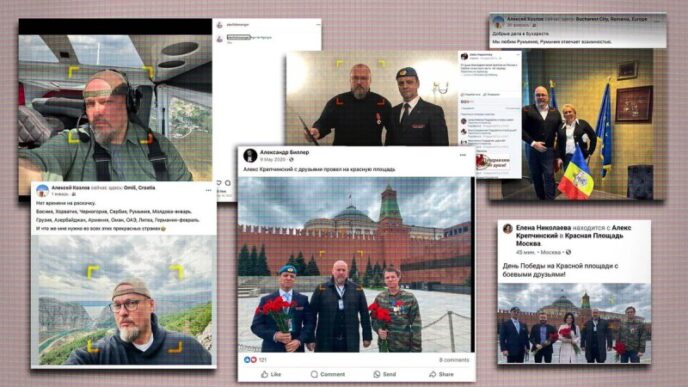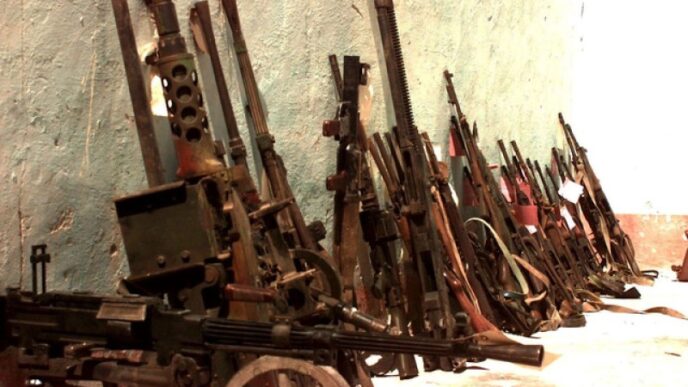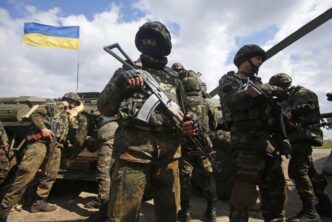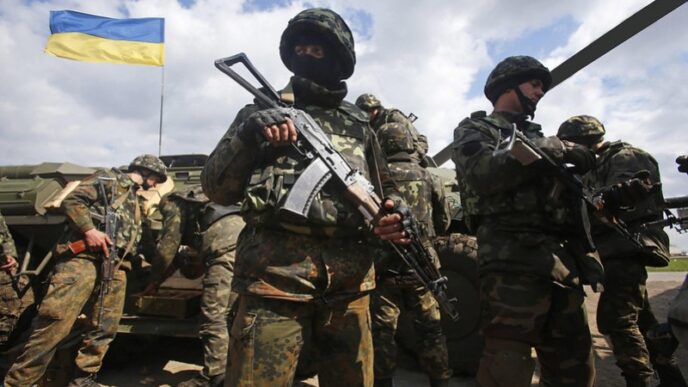Key Findings
- Didac Giménez Sánchez, the owner of ‘black-hat’ reputation manager Eliminalia, also owns shares in multiple surrogacy businesses in Ukraine.
- He co-owned them with Jose Maria Hill Prados, a Spanish pedophile who was convicted of sexually abusing Sánchez and his sister.
- Ukrainian police say their surrogacy businesses trafficked babies, provided clients with infants that were not biologically theirs, and lied to prospective parents about their capabilities.
When Didac Giménez Sánchez married his colleague in July 2021, it had all the glitz and glamor of a celebrity wedding: After saying their vows on a stage surrounded by flowers and delicate pink art-deco arches in the garden of a country estate south of Kyiv, the couple partied the night away in a reception emceed by a Ukrainian TV star.
But there was a skeleton at the feast.
Among the guests was a man named Jose Maria Hill Prados, a Spanish pedophile who had been convicted of sexually abusing Sánchez 14 years earlier. Not only did he attend Sánchez’s wedding, he was seated at the groom’s table.
According to Sánchez’s autobiography, he was introduced to Hill Prados as a teenager by a volunteer at a children’s home, where he would go to use computers and escape his troubled family. The Spaniard was convicted of abusing Sánchez and his sister, and making child pornography.
Hill Prados was sentenced to eight years in a Spanish prison in 2007. But the following year, Sánchez recanted, claiming police had pressured him to make the accusations after he was caught shoplifting. (Hill Prados tried to appeal his conviction, but the court turned him down.)
After Hill Prados was released, he and his former victim went into business together.
Corporate records show Sánchez set up a surrogacy company called Subrogalia in Spain in 2013, which connected couples who are struggling to conceive with women who could carry their embryos. Soon after Hill Prados got out of prison, his adopted son became the owner of another Subrogalia in Ukraine to help find those surrogates. Hill Prados later took a majority stake in that company, and an employee in Ukraine told OCCRP he had always understood Hill Prados to be his boss.
Their business was swiftly mired in accusations of trafficking in children. Reporters found that Subrogalia has been investigated in at least two countries for crimes that include selling babies and providing desperate clients with infants that were not biologically theirs.
“It is absolutely appalling that a convicted sex offender should be allowed to operate in such a sensitive area as gestational surrogacy, which is based on exploitation of women living in poverty,” said Nina Potarska, Ukrainian head of the Women’s International League for Peace and Freedom.
“Given the background of such exploitation, it is not surprising that there are allegations of malpractice, such as trafficking of babies.”
Subrogalia is part of a network of companies controlled by Sánchez and Hill Prados that today stretches to nine countries. They include Eliminalia, a reputation manager that has used threats, fake news, and even impersonated European Union officials to conceal the dubious pasts of its clients — many of whom are convicted or accused criminals.
Hill Prados appears to have employed the same tactics that Eliminalia used, such as altering critical stories and flooding search engines with unrelated content that mention his name, to hide his own past. While Google appears to have de-indexed many of these stories, a search of his name on Bing still brings up more than a million hits on “news” sites, some of which appear to be operated by a Venezuelan who runs a reputation management business. None appear to mention his pedophilia conviction.
But Hill Prados hasn’t been able to escape the headlines. In 2016, Spanish media outlet El Confidencial reported that a 17-year-old boy who was working at a music company owned by Sánchez alleged that Hill Prados made sexual advances toward him.
Sánchez denied the accusation in an interview with the online outlet, but noted of Hill Prados, “everybody knows he likes boys.”
Hill Prados, Sánchez, and Subrogalia did not reply to requests for comment. Lawyers for Eliminalia declined to comment.
Family Business
Hill Prados founded Subrogalia in Ukraine in 2015, seeking to take advantage of the country’s liberal surrogacy laws. Before the Russian invasion, an estimated 2,000 babies were born to Ukrainian surrogate mothers every year, making it one of the world’s top hubs for gestational surrogacy.
Although Sánchez has publicly claimed he owned Subrogalia, corporate records show Hill Prados in fact owns a controlling stake in its Ukrainian business. Asked by El Confidencial why he had agreed to act as a frontman, Sánchez said it had been a personal favor “because I destroyed the life of Hill Prados and his family.”
Subrogalia Ukraine’s other investors were Hill Prados’ sons Andrei and Alan, who both hold minority stakes and management positions.
Andrei and Alan were the eldest of two pairs of brothers Hill Prados adopted from Russia in the 1990s via a charity he set up called Parents Forever. Within a few years, all four of these boys had alleged Hill Prados sexually abused them and were removed from his custody, though the case fell apart on procedural grounds, according to Spanish media. Like Sánchez, all four later withdrew their allegations.
The brothers did not reply to a request for comment.
Andrei and Alan were also seated at the groom’s table at Sánchez’s wedding, along with Hill Prados. According to the seating plan, he was listed under the name “Diego,” but analysis of a video of the proceedings with facial recognition software confirmed it was him.
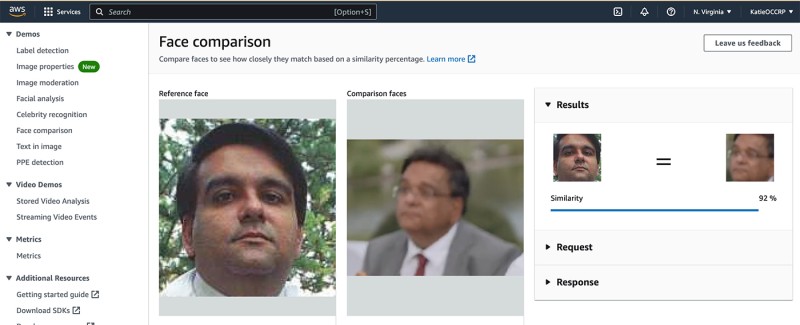
Indeed, Hill Prados appears to have officially changed his name to Diego after being released from prison. Corporate records show he used a Spanish identification number in that name to register Subrogalia in Ukraine, though reporters were able to match the number to his previous name, Jose Maria.
It’s unclear if Hill Prados changed his name in order to conceal his criminal past when opening Subrogalia. Maria Dmytriyeva, an expert on the industry, said Ukraine’s lax laws mean it is not illegal for a sex offender to own a surrogacy business.
“The entire industry is regulated by two paragraphs in a law and two ministerial instructions,” she said.
Subrogalia has since expanded its operations to Russia, Greece, and, briefly, Mexico. But Ukraine remained its top area of operation: a former manager said that, before the war, women there bore around 100 babies every year for paying parents, each earning the company around 8,000 euros in profit.
It didn’t take long for the surrogacy company to face legal problems on both ends of Europe.
‘Trading Children’
In 2016, the year after the Spanish version of Subrogalia was founded, a judge ordered the company to pay 88,000 euros to two pairs of prospective parents for “serious and grave” breaches of contract.
Subrogalia was found to have misled the parents, making false claims about their capabilities, and failing to deliver a child as promised. One of the parents told Spanish media her mother had taken a loan out on property she owned to finance the process.
“How do you tell a grandmother who has [taken on] a mortgage that she is not going to be a grandmother?” she said.
In an apparent bid to distance itself from the case, Subrogalia Ukraine changed its name to Eurosurrogacy in 2017, while in Spain Subrogalia was replaced by another company that called itself Gestlife. But the move wasn’t enough to thwart law enforcement.
In 2018, Ukrainian police also opened an investigation into Eurosurrogacy’s partner, BioTexCom. One of the largest IVF clinic chains in the world, BioTexCom creates and implants the embryos for around 95 percent of Eurosurrogancy’s Spanish clients.
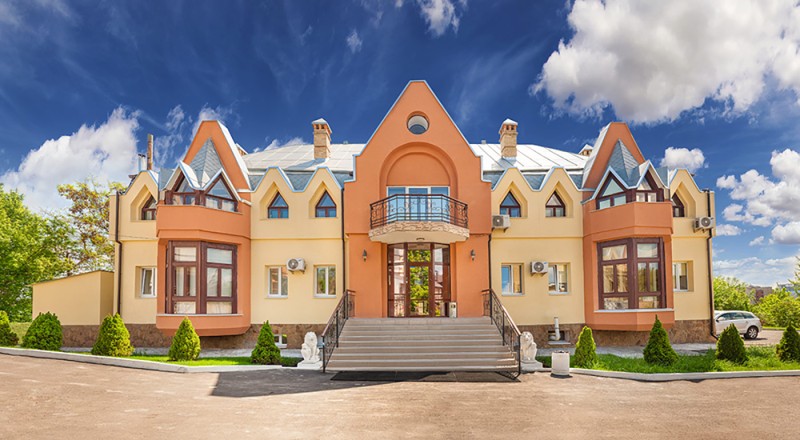
The BioTexCom Clinic in Kyiv, Ukraine.
BioTexCom employees were accused of being part of a “criminal group” that used surrogacy programs as a guise for trafficking children. Prosecutors allege they helped “foreign citizens to make illegal deals, involving minors” that amounted to “trading children for a financial reward.”
Eurosurrogacy was named as one of its partners in these crimes, and had its bank accounts frozen as a result. The investigation is ongoing.
“As of today, this criminal proceeding has been suspended, no procedural actions have been taken since 2019,” BioTexCom said in a statement, claiming that the investigation had found no instances of babies genetically unrelated to the commissioning parents.
Hill Prados did not reply to questions regarding the investigation into Eurosurrogacy. BioTexCom said it was not aware of his crimes when they went into business together, and suspended cooperation with him as soon as they found out.
Properties, Police, and a Vault Full of Cash
BioTexCom and Subrogalia appear to share more than just business ties.
Subrogalia’s first address was a building in the central Ukrainian town of Kropyvnytskyi that belonged to BioTexCom’s owner, Albert Tochilovsky, part of his multi-million-dollar property portfolio that also includes a mansion in downtown Kyiv that houses BioTexCom’s clinic.
Tochilovsky is accused of seizing these properties from their owners in 2010 with the help of local lawyers, who allegedly transferred ownership to offshore companies that he controlled. Yury Antonev, who owned one of the properties, said Tochilovsky also stole millions of dollars his family had stashed in a vault underneath it.
According to prosecutors’ documents seen by OCCRP, Tochilovsky is under investigation for four cases of usurping properties through fraud, including the building where Subrogalia was initially registered.
BioTexCom confirmed it had provided Subrogalia with a “legal address,” but claimed the company never operated there. A spokesperson for the clinic also denied the accusations against Tochilovsky, pointing out he has not been convicted of anything.
The first trial of one of Tochilovsky’s managers in connection with the allegations would have taken place in April 2022, were it not for the Russian invasion. It’s unclear when it will make its way to court.
Undaunted, Sánchez set up his own Ukrainian IVF clinic in 2017 named InterFiv, and one of Hill Prados’ sons became its beneficial owner in 2021. But just weeks before Sánchez’s wedding, Ukrainian law enforcement raided InterFiv’s offices in Kyiv.
Again, law enforcement suspected InterFiv of human trafficking, including charges that it had given parents babies that were not their own. In other cases, InterFiv had allegedly arranged fictitious marriages and falsified documents to smuggle babies out of Ukraine.
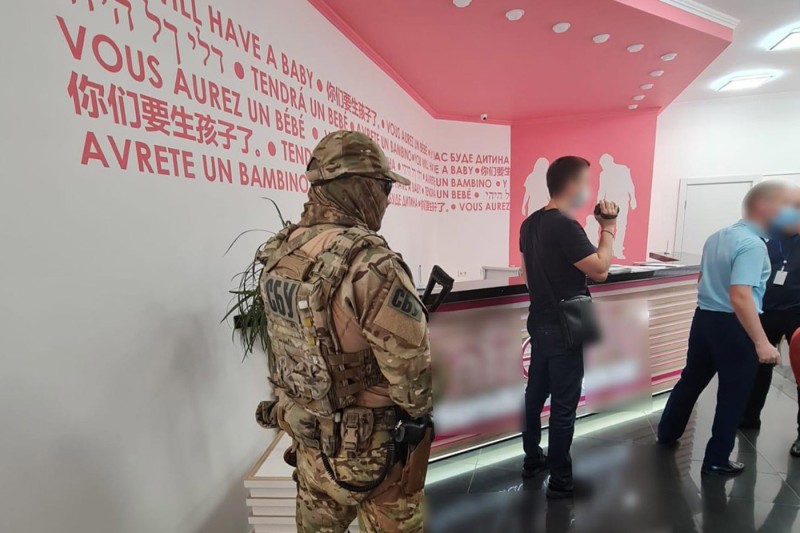
Raid by Ukrainian authorities at InterFiv’s offices in Ukraine.
No charges have been brought against Sánchez, Hill Prados, or anyone in his family. In February 2022, a court extended the investigation for one year, though the Russian invasion of Ukraine a week later delayed proceedings.
Police told OCCRP the investigation is ongoing. A source in Ukraine’s security service said they had found evidence to support the charges, and expected a case to be brought against InterFiv once the legal system gets up and running again. It’s unclear when that will be.
Sánchez and Hill Prados have now discarded InterFiv, and set up a new company in Kyiv, InterEko, to operate their clinic.
But investigations have continued to dog them. In November 2022, a Subrogalia representative in Russia was sentenced to four and a half years in prison for human trafficking after he was convicted of selling a child that had been refused by one Spanish couple to another Spanish woman instead.

